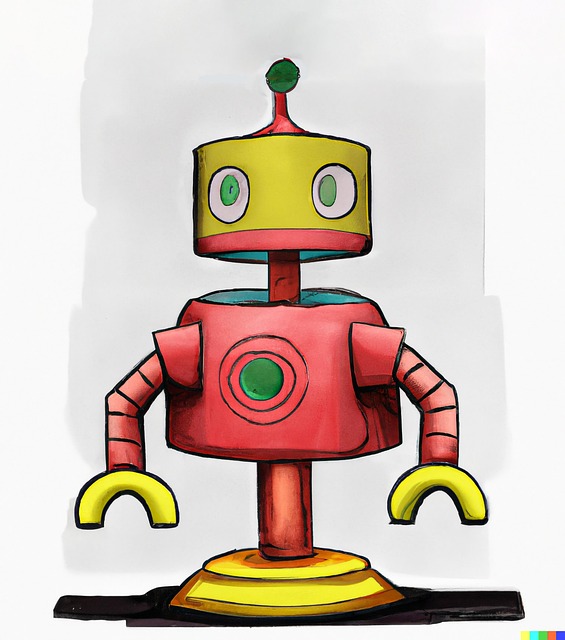# AI Technology and Its Role in Shaping a Smarter, More Efficient Future for All Sectors
Artificial Intelligence (AI) has evolved from a niche technological curiosity into a cornerstone of modern innovation, permeating various sectors of the economy. As organizations increasingly recognize the potential of AI to enhance productivity, streamline operations, and foster innovation, the technology is poised to redefine how industries operate. This article delves into the transformative impact of AI across multiple sectors, highlighting its role in shaping a smarter, more efficient future.
## Revolutionizing Healthcare
In the realm of healthcare, AI is making significant strides in enhancing patient outcomes and optimizing operational efficiency. Machine learning algorithms are now capable of analyzing vast amounts of medical data, enabling early diagnosis and personalized treatment plans. For instance, AI-driven tools can sift through medical imaging to identify anomalies that may escape the human eye, thereby facilitating timely interventions. This not only improves patient care but also reduces the burden on healthcare professionals, allowing them to focus on more complex cases.
Moreover, predictive analytics powered by AI is transforming how healthcare providers manage resources. By analyzing historical data and patient trends, hospitals can anticipate patient influx, optimize staffing levels, and manage inventory more effectively. Consequently, the integration of AI in healthcare is not merely a technological upgrade; it represents a paradigm shift towards a more proactive and patient-centered approach.
Equally important is the role of AI in drug discovery and development. Traditional methods of researching and testing new medications are often time-consuming and expensive. However, AI algorithms can simulate molecular interactions and predict the efficacy of drug compounds, significantly speeding up the research process. As a result, pharmaceutical companies can bring life-saving medications to market faster, ultimately benefiting patients worldwide.
## Transforming the Business Landscape
In the business sector, AI is reshaping operational frameworks and redefining customer engagement strategies. Companies are increasingly leveraging AI-driven analytics to gain insights into consumer behavior, enabling them to tailor their offerings more effectively. By analyzing purchasing patterns and preferences, businesses can create personalized marketing campaigns that resonate with their target audience, leading to improved customer satisfaction and loyalty.
Furthermore, the automation of routine tasks through AI technologies is enhancing workforce efficiency. Robotic Process Automation (RPA) allows organizations to automate repetitive tasks such as data entry, invoice processing, and customer service inquiries. This not only reduces the likelihood of human error but also frees up employees to focus on higher-value activities that require critical thinking and creativity. As a result, businesses can achieve greater productivity while fostering a more innovative workplace culture.
Collaboration tools powered by AI are also enhancing communication and teamwork within organizations. Platforms that utilize natural language processing can facilitate seamless interaction among team members, regardless of geographical barriers. By breaking down silos and promoting real-time collaboration, AI is helping businesses to adapt to the increasingly dynamic and interconnected global market.
## Enhancing Sustainability and Environmental Stewardship
Addressing the pressing challenges of climate change and resource depletion is another critical area where AI is making a substantial impact. Environmental monitoring systems equipped with AI can analyze data from various sources, such as satellite imagery and sensor networks, to track changes in ecosystems and predict natural disasters. This information is invaluable for governments and organizations aiming to implement effective conservation strategies and disaster response plans.
Moreover, AI is playing a pivotal role in optimizing energy consumption across industries. Smart grids, powered by AI algorithms, can analyze energy usage patterns and adjust supply accordingly, minimizing waste and reducing costs. In the manufacturing sector, AI-driven predictive maintenance can help organizations monitor equipment performance in real-time, preventing breakdowns and extending the lifespan of machinery. Such innovations contribute to a more sustainable approach to production, aligning economic goals with environmental responsibility.
Transportation is another sector where AI is driving sustainability efforts. Autonomous vehicles and AI-enhanced logistics systems are designed to optimize routes, reduce fuel consumption, and minimize emissions. By improving the efficiency of transportation networks, AI can play a crucial role in reducing the carbon footprint associated with the movement of goods and people.
## Conclusion: A Collective Future Shaped by AI
The transformative potential of AI technology across various sectors is undeniable. From revolutionizing healthcare and enhancing business operations to promoting environmental sustainability, AI is paving the way for a smarter, more efficient future. As organizations continue to harness the power of AI, it is crucial to address ethical considerations and ensure that the technology is deployed responsibly. By fostering collaboration among stakeholders—governments, businesses, and communities—we can collectively shape a future that leverages AI for the greater good.
In summary, the integration of AI technology is not merely a trend; it is a fundamental shift in how we approach challenges and opportunities across sectors. As we stand on the brink of this new era, embracing AI’s potential while remaining vigilant about its implications will be key to unlocking a future that benefits all.











